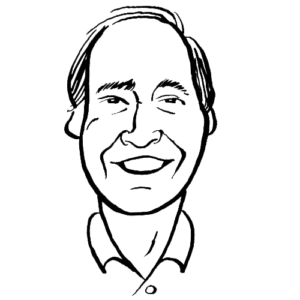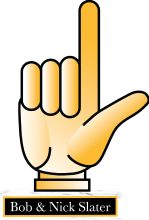“Nothing spoils fun like finding out it builds character.” Calvin, of Calvin & Hobbes
If you are familiar with the comic strip, then you’ll recall that Calvin’s dad constantly stressed the importance of “building character,” usually through situations and tasks that Calvin hated. Though Calvin couldn’t appreciate it at the time, his dad’s insistence on character building lines up with the teaching of LOA! favorite Aristotle.
Unfortunately, egregious examples of lack of character are all too easy to find these days. One must merely check the news, as on most any given day stories of corporate and personal malfeasance abound. We recently looked at the Wall Street Journal for one 6-day period, and here are some of the stories we found:
- Theranos Inc. CEO Elizabeth Holmes is on criminal trial for fabricating the success of her blood-testing startup; she faces 11 counts of fraud for allegedly lying to investors and patients about her company’s capabilities. Investors lost nearly $1 billion
- Former New York Governor Andrew Cuomo is coming under fire for (among other alleged transgressions, like sexual harassment) using state employees to work on his book American Crisis: Leadership Lessons from the Covid-19 Pandemic; suspect that’s not one of the leadership lessons!
- The National Football League (NFL) is stonewalling and refusing to produce documents to a congressional committee pertaining to the workplace misconduct investigation of the Washington Football Team; something interesting would appear to be in said documents because the NFL fined the team $10 million for an “unprofessional” workplace
- The LasikPlus eye surgery chain is alleged to have put profit over care, with doctors pushed to boost surgery volume beyond that which they felt was safe for patients
- An arbitrator ordered actor Kevin Spacey to pay $31 million in damages to the production company that was damaged when he was fired from the popular Netflix political drama House of Cards due to allegations of sexual harassment and misconduct
- Despite saying he wasn’t aware of many of the claims, evidence shows that Activision Blizzard Inc. CEO Bobby Kotick knew for years of sexual misconduct claims and didn’t properly inform the company’s Board of Directors
- A whistleblower at American Express (AmEx) filed a report with the IRS alleging that AmEx knowingly persuaded business owners to underreport their income and taxes to increase credit card transaction volume
 In brighter news, the Women’s Tennis Association (WTA) is taking on the Chinese government in support of player Peng Shuai, who alleged she was sexually assaulted by former Vice Premier Zhang Gaoili, and who has for practical purposes disappeared (she has since re-appeared in what appear to be carefully orchestrated videos). Despite hosting multiple lucrative tournaments in China, WTA head Steve Simon has said the organization will “pull our business” if the situation is not satisfactorily resolved.
In brighter news, the Women’s Tennis Association (WTA) is taking on the Chinese government in support of player Peng Shuai, who alleged she was sexually assaulted by former Vice Premier Zhang Gaoili, and who has for practical purposes disappeared (she has since re-appeared in what appear to be carefully orchestrated videos). Despite hosting multiple lucrative tournaments in China, WTA head Steve Simon has said the organization will “pull our business” if the situation is not satisfactorily resolved.
The lesson for you and your career advancement? You can stand out simply by being a person of character. To wit, a decent human being with a conscience, a backbone, and a determination to do the right thing. In most company cultures – let’s hope – this kind of person is highly valued. In good companies, it will be.

The ancients called it “ethos,” meaning argument by character. Aristotle said the way to develop character is through “habituation” — repeating virtuous acts until you do them without thinking. He believed one becomes honest by behaving honestly, unselfish by doing unselfish things and self-disciplined by performing acts of personal discipline.
To differentiate through character, develop these habits:
Have principles and adhere to them.
Begin by asking, “What do I stand for? What will I refuse to tolerate? When will I speak up?” It’s easier, of course, to adhere to principles when times are good and your principles aren’t challenged. It’s not so easy when you’re instructed to do something you know is wrong, when taking a stand puts you at risk, or when, under pressure, you’re tempted to do something unethical.
Be honest in all matters, large and small.
Be truthful and do not mislead others by acts of commission or omission. Don’t say you did something when you didn’t (or vice versa). Don’t profess to have knowledge or skills that you don’t. Don’t say you know people when you don’t. If you prove dishonest in small matters, your boss and teammates will be wary about trusting you with larger ones.
Do what you say you will do.
Don’t commit to doing something unless you will perform. Be mindful to keep your word when you promise to do something, send something, be somewhere, make or return a call, or meet a deadline. If in doubt about your intention or ability, don’t promise. Breaking even a small promise may negatively influence a relationship in a lasting way.
Renegotiate deadlines, if you must, in advance.
If you’re going to miss a deadline – defined as anything large or small you committed to doing by a certain time – tell the affected person before the time arrives and try to negotiate a new deadline. In the absence of advance disclosure, the logical assumption is you’ll meet your deadline.
Spend company money as you would your own.
If you wouldn’t spend your own money sitting in a certain class of airline seat, or staying at a certain hotel, or going to a certain restaurant, or ordering a certain bottle of wine, don’t do it on your company’s dime. Frugality, both personal and corporate, is a good habit.
In any company, some people are trusted more than others. Earn the trust and respect of your manager and colleagues by acting with integrity in all matters and at all times — just as Aristotle proposed.
Sources: Wall Street Journal, 11/17/2021, 11/19/2021, 11/20/2021, 11/21/2021, 11/22/2021, 11/23/2021.

